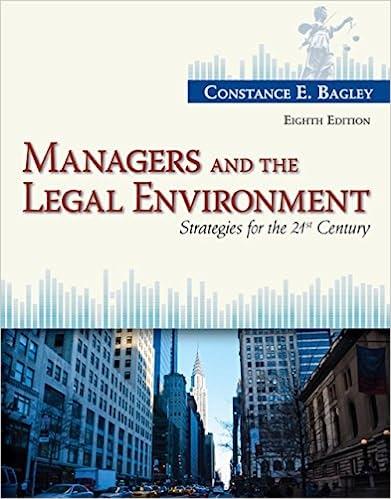As part of its Library Project program, Google, Inc. scanned more than 20 million books in their
Question:
As part of its Library Project program, Google, Inc. scanned more than 20 million books in their entirety without obtaining permission for any use of the books from the copyright holders. Google analyzed the scans of the books and created an index that linked each word or phrase in each book with all the locations in all the books where that particular word or phrase was used. This enabled a Google user to conduct a search by entering a word or phrase; Google then displayed a list of books that included the search term. Google also generated an "About the Book" page, which provided information about the book and a link to where the book was sold. No advertisements were presented within this feature. Some of the books were categorized under "snippet view[s]," comprising a web page divided into eight sections with three "snippets," or verbatim excerpts, from the book. A user could access more than three snippets from a book by making numerous search requests, but a user could never access an entire book because 10% of all pages were "blacklisted." In addition, not all of the generated snippets were available to a given user.
The Authors Guild, Inc., along with several individual plaintiffs, sued Google, Inc. for copyright infringement.
Google asserted the defense of "fair use." What factors does a court review under a fair use defense? How does Google fare under each of those elements? If you had been a manager at Google, what assurances from counsel would you have required before proceeding with the Library Project?
Step by Step Answer:

Managers And The Legal Environment Strategies For The 21st Century
ISBN: 9781285860374
8th Edition
Authors: Constance E. Bagley





